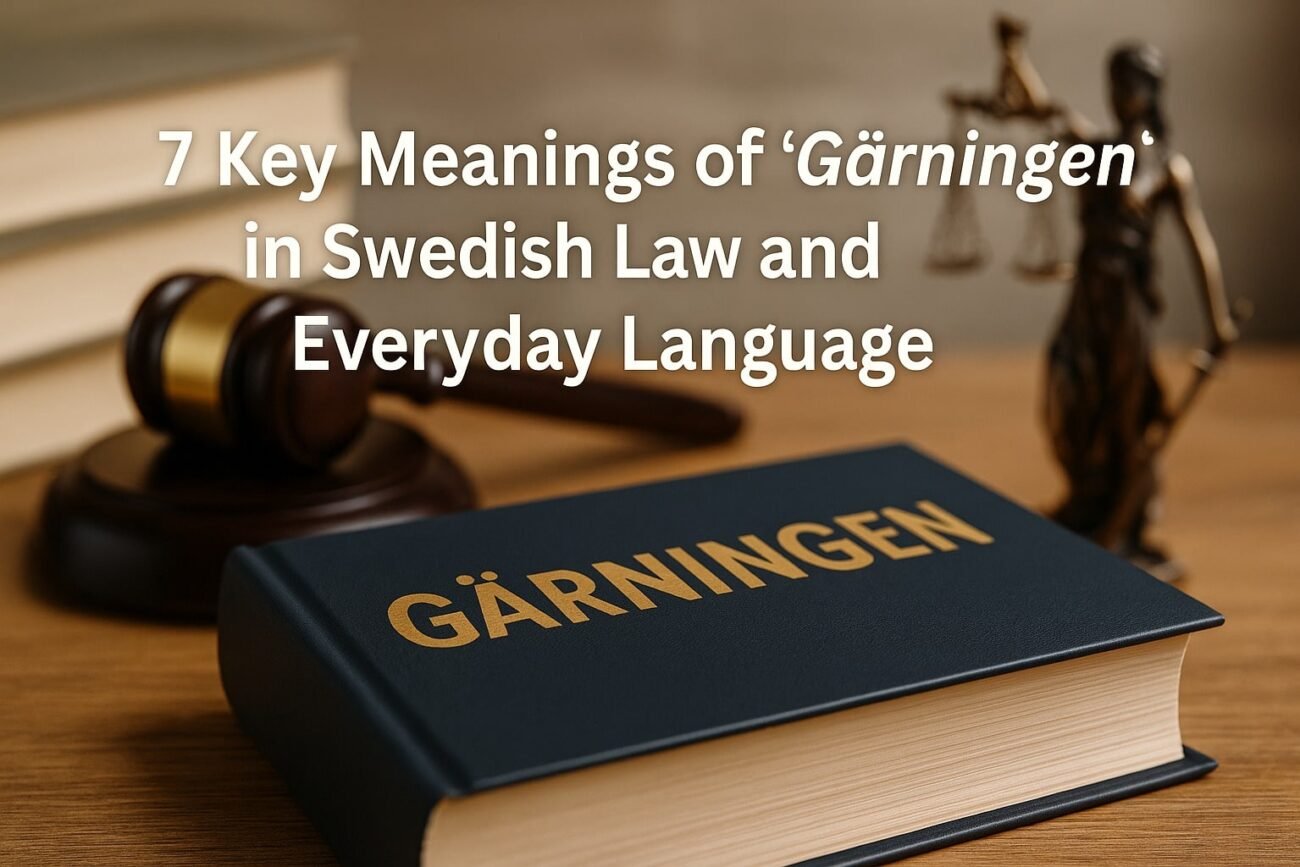If you’ve come across the word “gärningen” and found yourself unsure about its meaning, you’re not alone. This Swedish term appears frequently in legal, journalistic, and everyday contexts in Sweden. In this article, we’ll break down what gärningen means, how it is used in different settings, and why understanding it is useful for anyone learning Swedish or reading Swedish news or legal content.
What Does “Gärningen” Mean?
In Swedish, “gärningen” translates directly to “the act” or “the deed” in English. It is derived from the root word gärning, which means an act, a deed, or a committed action. The definite form gärningen refers to a specific act—often one that is already known in context.
Common English Translations:
- The act
- The deed
- The offense (in legal usage)
- The crime (if the deed is criminal)
How Is “Gärningen” Used?
The word is most commonly used in legal, journalistic, or formal language. Below are the major contexts in which gärningen appears, along with examples to make them clear:
In Legal Contexts
“Gärningen” is often used in police reports, court documents, and legal news articles. It refers to the specific act committed by a person, especially when discussing criminal offenses.
Example: Polisen anlände till platsen kort efter gärningen.
Translation: The police arrived at the scene shortly after the act.
Here, gärningen refers to a criminal act, such as a robbery, assault, or other offense.
In News And Media
Swedish media outlets often use the term gärningen when reporting on incidents, particularly crimes or controversial actions.
Example: Ett vittne såg gärningen från andra sidan gatan.
Translation: A witness saw the act from across the street.
In Formal And Historical Texts
In historical or religious texts, gärningen may refer to a noble act or moral deed—not necessarily criminal.
Example: Hans gärning för mänskligheten kommer aldrig att glömmas.
Translation: His deed for humanity will never be forgotten.
Is “Gärningen” Always Negative?
Not necessarily. While the word is commonly used in crime-related contexts, it doesn’t always imply wrongdoing. The meaning depends heavily on context.
- Neutral Use: “Hon är stolt över gärningen.” (She is proud of the deed.)
- Positive Use: “Hans gärningar har räddat liv.” (His deeds have saved lives.)
- Negative Use: “Han ångrar gärningen.” (He regrets the act.)
Related Words And Phrases
To better understand gärningen, it helps to recognize related terms:
| Swedish Term | English Translation | Notes |
| Gärningsman | Perpetrator / Offender | Literally “the deed man” |
| Brottsplats | Crime scene | Where gärningen took place |
| Gärningsögonblicket | The moment of the act | Used in witness accounts or police reports |
| Utföra en gärning | To commit an act | Common phrase in legal or ethical writing |
Why “Gärningen” Matters For Language Learners And Readers
Understanding gärningen can:
- Help you interpret Swedish legal or news articles more accurately.
- Improve your vocabulary range when learning Swedish.
- Allow you to understand the nuances between positive and negative connotations of similar words.
- Give better insight into how Swedish culture talks about actions and responsibility.
Final Thoughts
The word “gärningen” may seem simple, but it carries a wide range of meanings depending on the situation. From everyday deeds to serious crimes, it reflects how actions are perceived and described in Swedish society. Whether you’re learning the language, reading local news, or diving into Scandinavian crime novels, understanding gärningen is key to grasping the full picture.
FAQ’s:
Is “gärningen” Used In Everyday Conversation?
Not commonly. It’s more formal and is typically used in news, legal, or literary contexts.
Can “gärningen” Be Used For Good Deeds?
Yes, it depends on context. While often linked to crime, it can describe any meaningful action, good or bad.
Is There A Direct English Equivalent?
“The act” or “the deed” are the closest, but “the offense” fits best in legal or criminal contexts.
Hungry for more? Head over to my website for fresh articles.
5 Lessons New Parents Can Learn From The Ismail Kolya Divorce
